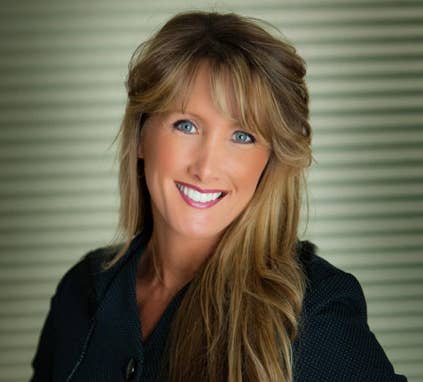
Rebecca Kiessling's first thought when she heard Congressman Todd Akin's claim that rape rarely leads to pregnancy was, "oh no, another candidate flubbed it." She's an attorney and vocal anti-abortion advocate who also found out in high school that she was conceived when her birth mother was raped. She says she's used to comments like Akin's — "a lot of pro-life leaders," she says, "minimize pregnancy and abortion in cases of rape."
Some women who became pregnant through rape feel the same way. Heather Gemmen Wilson, who conceived her now-16-year-old daughter when a man broke into her home and raped her, says that while she thought Akin's comment was ill-informed, "it didn't surprise me or anger me because so many people just aren't aware" that pregnancy through rape can and does happen. "It's easier to believe what you want to believe." Among women who have conceived or been conceived through rape, there's a palpable frustration with those who prefer to act like they don't exist.
Kiessling believes other anti-abortion advocates downplay the percentage of women who become pregnant through rape (a 1996 study put the figure at about 5% of rape victims) because of the perception that almost all pregnant rape victims would want an abortion. In reality, according to the 1996 study — which experts at the Guttmacher Institute and Rape, Abuse, and Incest National Network (RAINN) say is likely the most recent data available — about 50% of women who get pregnant through rape chose abortion. That's slightly higher than the abortion rate for unintended pregnancies in general, which Guttmacher puts at about 40% — but it still means half of rape victims who conceive do carry the pregnancy to term.

Still, Kiessling feels the anti-abortion movement sometimes treats her and others who were conceived or pregnant by rape as expendable. She says she's heard other anti-abortion advocates compare the abortion climate in America today to a burning building, where "you save as many as you can" — they're willing to compromise on abortion for rape victims because they feel it will make anti-abortion laws more palatable. Kiessling says that while she was bothered by Akin's comments, she was even more displeased with the Romney campaign's response that it would not seek to ban abortion in cases of rape. She sees anti-abortion advocates who approve of rape exceptions as throwing people like her under the bus, and she says it has to stop: "we are not cannon fodder."
Liz Carl, who became pregnant when she was raped just before her eighteenth birthday and carried her pregnancy to term, feels similarly — "I hear it all the time, 'I'm pro-life, except in cases of rape.'" She says this view is probably an effort to be compassionate to rape victims, but she thinks those who hold it are "the downfall of the pro-life world." She explains, "they are just simply picking and choosing, and therefore being hypocrites as they tell women that they cannot pick and choose." Carl believes abortion should be illegal, regardless of whether the woman was raped.
Now that Akin's comments have provoked national outrage, it's going to be harder for anyone to pretend that rape doesn't cause pregnancy. Whether this will have any effect on rape exceptions remains to be seen. A call for a constitutional amendment banning abortion, with no exception for rape, remains in the official Republican Party platform this year, despite Romney's statement.
But not every woman who got pregnant by rape would like to see rape exceptions gone. Heather Peterson-Grech says she briefly considered abortion when she became pregnant by rape, but "just could not bring myself to do it" — her daughter is now seven years old and "I could not imagine my life without her." The experience changed her politics: she had been vehemently anti-abortion, "but after my rape I decided that it's not my choice to tell someone what to do with their body." She says her rape isn't something she talks about often, but "it's part of my history and it's something that made me the person I am today." In the wake of Akin's comments, her history and those of women like her — on both sides of the abortion debate — will be a lot harder to ignore.
